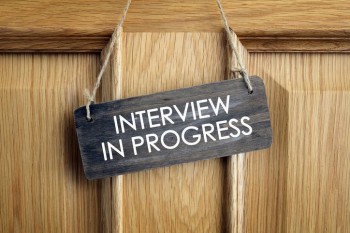When you are in the market for a job, it is unlikely the tough interview questions will trick you; the easy ones are the greatest threat to acing the interview. They are troublesome to the job seeker because they seem harmless and simple. There is one question among all others that appears to be a warm-and-fuzzy attempt to get to know you, which causes prospective candidates much grief. It is a cleverly veiled query and can be lethal to your chances if you are unprepared for it.
“SO TELL ME A LITTLE ABOUT YOURSELF.”
At least 85% of all job interviews begin with this question. In seven-words, this seemingly innocent question places you squarely on the hot seat. This is one of those open-ended, “soft ball” questions interviewers love to serve-up in the hopes of getting a huge bang-for-their-buck. Their job is to see how you fit into their picture as an employee. They are also very busy people and like covering as much distance as possible—as fast as possible. This is one of the ways they do it. It is not intended to be a disqualifying request, but can be when you don’t handle it well.
Your reply quickly tells them about how prepared you are and also determines your level of understanding about what the company wants from you. As a prerequisite for many positions, they are also able to get a quick assessment about how personable, intelligent and articulate you are. Their interest is keen regarding how well you validate your qualifications as a prospective employee.
THE WRONG WAYS
The most common misinterpretation of this question may have you convinced the interviewer wants to know about you as a person. Wrong. This isn’t the time for you into a lengthy monologue about your childhood on the farm or Aunt Gladys. It also isn’t about your pet goldfish, Ziggy.
One other interpretation is that the toughest interview question is best handled by asking the interviewer how they would like for you to respond. This is viewed as an indication that you are unprepared.
Another misconception is that you need to be able to process mental data rapidly, form an intelligent response and serve-up a bright reply. Unfortunately, you would also be wrong again. If you put yourself in this position and go through all of those mental gymnastics, you also aren’t primed for this important exchange and most people do not think well under pressure.
Although your reply is best when personably and positively delivered, it isn’t the time to convey personal information. The best way to think about any interview is to view the potential employer as a buyer and you the seller. The interviewer is the employer’s agent and the point-of-contact that needs convincing first. You are selling the most valuable things you possess, which are your skills, talents and abilities. If they like what you have to sell, they will buy what you are offering.
THE RIGHT WAY
There is only one way to handle the toughest interview question and it is simply being prepared to answer it. Research the company and the job on the internet. Company information is easily found and, if you cannot find information about the specific job, you can certainly find one very similar. Learn and know as much as possible about the company and what you will be doing in your new assignment. One of the most often-cited complaints personnel professionals have about prospective new hires is that they know nothing about the company or what the job entails.
Making a 40-hour weekly commitment for the foreseeable future is a serious pledge. If you have no sense of what the company or job requirements are, how can you make a decision about the opportunity? It’s a sensible question and an important one to ask yourself before accepting any interview or job.
Prepare thirty- to sixty-second commercials that blend your accomplishments and work history in ways that illustrate what you can do for them. Benefit statements aren’t just for sales types and you’ve got something you want them to buy you.
Another commonly held misconception is that an interview is a time to shout about how good you are. It is a good time to do this, if you take the shouting and convert it to how and why what you have benefits the company and position. This is an important distinction. Show value in how your knowledge and accomplishments can improve specific areas or is a direct benefit to them. Fold your prior work history and career highlights into powerful benefit statements that establish your value to them. This about what you bring to them and the benefits seen as a result of you becoming one of their team.
Preparation and planning remove any need for fear of the toughest interview question. When, you combine research about the position and company with solid planning and personal commercials, you will get more follow-up interview requests and subsequent job offers.









